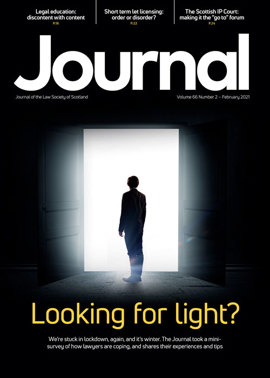Human rights: Protecting the child claimant
In SMO (a child) v TikTok Inc [2020] EWHC 3589 (QB), the court granted anonymity to a child claimant in an intended claim for breach of privacy against a social media company.
The Children’s Commissioner for England intends to bring an action on behalf of a 12-year-old girl from London against six corporate defendants said to be involved in the operation of TikTok. The claimant alleges that the defendants have committed various GDPR breaches, and claims damages for loss of control of personal data.
A pre-action application sought permission to issue the proceedings under a pseudonym, relying inter alia on rule 39 of the Civil Procedure Rules, which prohibits disclosure of a party’s identity only if the court considers non-disclosure necessary to secure the proper administration of justice and in order to protect the interest of that party.
Curiously, there was a rush by the claimants’ agents to issue the claim against the defendants before 31 December 2020. All but one of the defendants were foreign to England & Wales, and the claimant wished to avoid any jurisdictional challenge post-Brexit, and to be able to take advantage of the simpler enforcement regime for proceedings issued by that date.
Court’s considerations
Transparency as to party identity is an aspect of the law of open justice, a principle affirmed in Scott v Scott [1913] AC 417. However, in SMO the court recognised that the Human Rights Act 1998 is effectively “a statutory exception” to this principle and the court “must act compatibly with the Convention rights, including the right to respect for private life protected by article 8”. Moreover, “article 6 provides that the general rule of open justice may be departed from ‘where the interests of juveniles or the protection of the private life of the parties so require’”. This does not provide any automatic protection for children, however: “A balance must always be struck, and attention must be paid to the specifics of the individual case, not just generalities.”
Against this backdrop, the court considered the nature of the likely attention and harm that this case could cause to the claimant. The Commissioner identified that there was a risk of direct online bullying by other children or users of TikTok, and a risk of negative or hostile reactions from social media influencers who might feel that their status or earnings were under threat. The court considered that these were both realistic assessments and reasonably foreseeable. It accepted that children are particularly sensitive to the sort of attention and scrutiny that this case would bring, and that such attention can have a marked detrimental impact on a child’s mental health.
When assessing whether to derogate from the principle of open justice, the court also considered whether a lesser measure would suffice. It accepted that the claimant opting out of social media activity was not a realistic means of avoiding the risk, especially when children are required nowadays to have internet access for educational purposes.
While the court recognised that it is important for the media to be able to put a name to a participant in the legal process, this was not a case in which that aim could justify the risk of harm. That risk was significant. While it was not said in terms that the case could not otherwise be brought, the court accepted that requiring the claimant to be named could have a chilling effect on the bringing of claims by children to vindicate their data protection rights. On that footing, it held that anonymity would support the legitimate aim of affording access to justice, and was necessary to secure the administration of justice.
Comment
This judgment is of significance as it demonstrates factors that will be taken into account when deciding whether to anonymise a child claimant’s details when pursuing a claim against a social media giant. It is important that justice be open and transparent; however there is a balance to be struck. This is true in Scotland as it is in England & Wales. The risk of significant harm to a child that can be caused by online bullying or “trolling” appears to be a factor that will be taken into account by the court when assessing whether it can derogate from the general rule of open justice set out within article 6.
In Scotland, the power to grant anonymity is part of the court’s inherent jurisdiction or power. However, as Lord Malcolm held in MH v Mental Health Tribunal for Scotland 2019 SC 342, generally “court litigation is inconsistent with a desire for privacy, and it is a vital part of open justice that the press should be free to report proceedings in court”. Notwithstanding this, the court has to take into account the facts and circumstances of each particular case when deciding whether it is appropriate to derogate from the Convention rule of open justice.
Although SMO is an English authority, if an equivalent motion in a similar case were to be brought before a Scottish court, it is indicative of the considerations that the judge or sheriff would likely take into account when deciding whether to grant anonymity.
Regulars
Perspectives
Features
Briefings
- Criminal court: Discount season
- Family: Capital values in uncertain times
- Employment: Can employers require staff vaccination?
- Human rights: Protecting the child claimant
- Pensions: a bill with teeth
- Charities: commerce as public benefit?
- Property: Playing safe: on the right track?
- In-house: Wide world of in-house
In practice
- Priorities for our Parliament
- The Word of Gold: The gift that keeps on giving
- TRS: more trusts, more information, more access
- A proper conclusion
- The Eternal Optimist: Putting resolve into resolutions
- Appreciation: Professor Emeritus Robert Rennie
- Ask Ash: Trainee in a rut
- Royal Faculty invites new members







